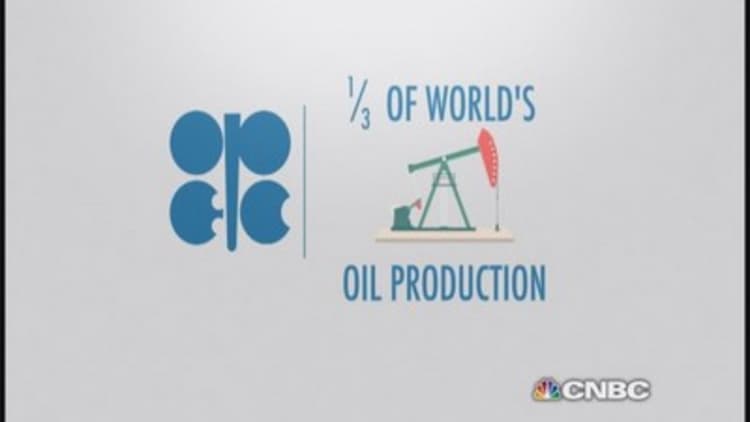
The Organization of the Petroleum Exporting Countries published a stinging critique on Monday of oil-producing countries that had refused to follow its lead in holding back supply in an effort to boost prices.
"Today, operating purely through self-interest is quite simply frowned upon," said the intergovernmental organization in a bulletin.
"Yet, when it comes to the supply of petroleum, there is a stubborn willingness of some non-OPEC producers to adopt a go-it-alone attitude, with scant regard for the consequences."
OPEC, which represents 12 countries but is dominated by top exporter Saudi Arabia, has steadfastly refused to cut output, despite the 50 percent tumble in Brent and WTI crude oil prices since June 2014.
In its bulletin, OPEC said that its crude output had been stable over the last nine years, averaging 30 million barrels per day.
In comparison, non-OPEC production "led by the U.S. and Canada" surged by 6.3 million barrels per day in the same period, the body said.
"In the past, OPEC has often shouldered the burden of ensuring oil market stability alone. In the current situation, which should be of great concern to ALL, is it not time for this burden to be shared?" asked OPEC, which accounts for 40 percent of the world's crude oil output.
The boom in the U.S. in the production of shale oil—an "unconventional" energy source extracted from rock fragments through a process known as fracking—is seen as partially to blame for the plunge in oil prices.
Read MoreEuropean shale dream is dying before it started
"This unconventional source is a great and welcome addition to the world's potential oil wealth. But the timing of its exploitation is certainly questionable," said OPEC.
On Thursday, the head of European energy research at Goldman Sachs, agreed that the onus was on oil-producers outside of the OPEC bloc to cut supply.
"Clearly an OPEC cut would help getting to the equilibrium faster, but at the end of the day, it is non-OPEC that needs to sort out the oversupply that it has created," Michele Della Vigna told CNBC.
Read MoreGoldman Sachs on oil: US needs to cut, not OPEC
—CNBC's Matt Clinch contributed to this report.

